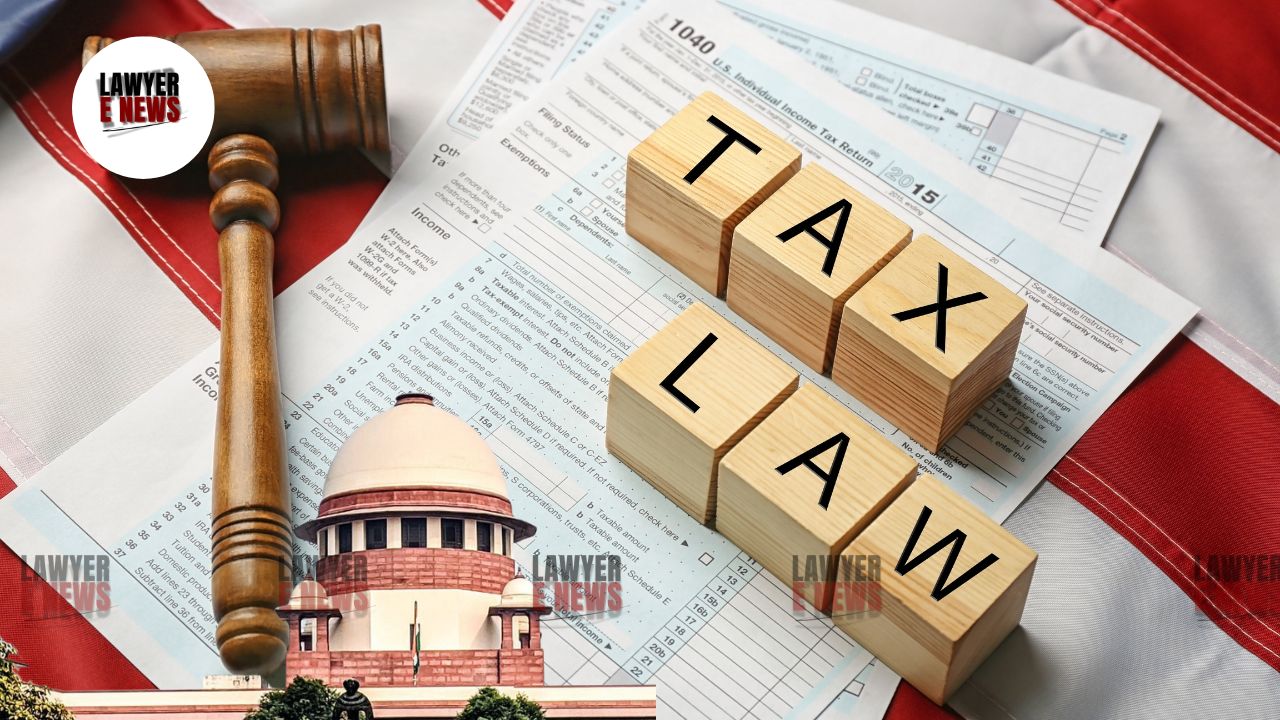-
by Admin
15 February 2026 2:16 AM



Supreme Court of India, in M/s Shriram Investments v. The Commissioner of Income Tax III, Chennai (Civil Appeal No. 6274 of 2013), upheld the High Court's decision, dismissing an appeal regarding the submission of a revised income tax return filed after the statutory deadline. The Court ruled that once a revised return is barred by limitation under Section 139(5) of the Income Tax Act, the assessing officer lacks the jurisdiction to entertain any claims made in such a return.
The appellant, M/s Shriram Investments, filed its original income tax return on November 19, 1989, for the assessment year 1989-90, later submitting a revised return on October 29, 1991. However, the revised return was barred by limitation under Section 139(5) of the Income Tax Act. The assessing officer refused to consider the revised return, prompting the appellant to appeal before the Commissioner of Income Tax (Appeals), which upheld the officer's decision. Although the Income Tax Appellate Tribunal (ITAT) partially allowed the appeal, remanding the matter to the assessing officer, the High Court set aside the Tribunal's order, ruling that the revised return was time-barred, leaving no provision for further consideration by the assessing officer.
The central legal question was whether an assessing officer has the power to entertain a revised return once the time limit prescribed by Section 139(5) of the Income Tax Act has expired. The appellant contended that their deferred revenue expenditure claim should still be considered, relying on judicial precedent, notably Wipro Finance Ltd. v. Commissioner of Income Tax. The appellant's argument was that, although the revised return was time-barred, the assessing officer should be able to assess claims arising during ongoing proceedings.
The respondent, represented by the learned Additional Solicitor General (ASG), countered by citing decisions in Goetze (India) Ltd. v. Commissioner of Income Tax and Principal Commissioner of Income Tax & Anr. v. Wipro Limited. The ASG argued that once the revised return is barred by time, the assessing officer has no jurisdiction to consider any new claims.
The Supreme Court, after reviewing the submissions and relevant case law, sided with the respondent. The Court noted that in Wipro Finance Ltd., the issue pertained to the appellate powers of the Tribunal under Section 254 of the Income Tax Act, not the assessing officer’s authority to entertain claims in a time-barred return. The Court clarified that, per Goetze (India) Ltd., an assessing officer cannot entertain any claims outside the statutory provisions of the Act, and Section 139(5) is explicit in its time constraints.
Further, the Court observed that the Tribunal, instead of exercising its powers under Section 254, wrongly directed the assessing officer to consider the claim. Since the assessing officer's jurisdiction is strictly limited by the timeframe outlined in Section 139(5), any claim in the revised return was deemed inadmissible. Consequently, the Supreme Court affirmed the High Court's ruling and dismissed the appeal.
The Supreme Court's decision in this case underscores the strict application of statutory time limits in the submission of revised returns under Section 139(5) of the Income Tax Act. It reaffirmed that assessing officers cannot entertain claims made in a time-barred return, further clarifying the jurisdictional boundaries in tax assessments.
Date of Decision: October 4, 2024
M/s Shriram Investments v. The Commissioner of Income Tax III, Chennai
